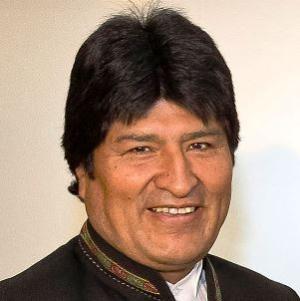A nasty drug war is brewing in this island nation off the coast of India.
Wisconsin Republican lawmakers tussle over medical marijuana, Delaware lawmakers move to expand that state's medical marijuana system, and more.
It's jailers gone wild this week.
The Florida legislature meddles with foreign policy, Wisconsin Republicans remain in search of agreement on advancing medical marijuana, and more.
A bill to broadly legalize drug test strips advances in West Virginia, DOJ releases FY 2021 arrest and imprisonment stats, and more.
A Georgia bill would raise the age for medical marijuana, a South Dakota bill would clarify that workers in certain safety-sensitive positions can still be fired for medical marijuana use, and more.
Wisconsin Republicans are at an impasse over medical marijuana, a Hawaii civil asset forfeiture reform bill gets filed, and more.
The Justice Department seeks to throw out a challenge to federal marijuana prohibition, MexicO wants to know where military grade weaponry reaching drug cartels is coming from, and more.
Ireland's first safe injection site will open in September, New York regulators release draft rules for adult use home grows, and more.
A restrictive South Dakota medical marijuana bill is killed, a Florida Senate resolution designating Mexican cartels as foreign terrorist organizations advances, and more.
Sri Lanka police have arrested 40,000 people in anti-drug operations in the past few weeks, according to Acting police chief Deshabandu Tennakoon. The campaign, known as Operation Yukthiya (Justice), features heavily-armed police and soldiers using sniffer dogs to stage nighttime raids on homes, searching public transport, seizing drugs, and arresting not only drug users and dealers, but even people whose only offense is having been arrested for drugs in the past.

A Sri Lankan beach. There is trouble in paradise. (Creative Commons)
The campaign has been replete with reports of unauthorized searches, arbitrary arrests, torture and even strip searches in public, and international concern and criticism is mounting.
Earlier this month, the UN Human Rights Council expressed its concerns with those reports, saying that: "While drug use presents a serious challenge to society, a heavy-handed law enforcement approach is not the solution. Abuse of drugs and the factors that lead to it are first and foremost public health and social issues."
And international civil society is joining in. In a joint statement last week, more than 30 global human rights and drug reform organizations including Amnesty International, Harm Reduction International, Human Rights Watch, and the International Commission of Jurists expressed their concern with the "drastic intensification" of anti-drug operations, which they say is leading to significant human rights violations.
"Alongside the Sri Lankan police, members of the armed forces have been supporting this operation, during which several human rights violations have been reported," the joint statement said. "These violations include alleged arbitrary arrests, primarily against individuals from marginalized socio-economic communities; searches conducted without warrants or reasonable suspicion; and degrading treatment including strip searches in public as well as cavity searches. The searches and arrests have been televised, in violation not only of the right to privacy (and of basic human dignity) but also of a person's right to be presumed innocent."
The groups point out that drug suspects are generally jailed after arrest, punishing them with loss of income and housing before they are even convicted of any crime, and stretching an already overcrowded prison system to the brink. Drug prisoners account for nearly two-thirds of all persons convicted of crimes, according to Sri Lanka's Department of Prisons.
"Persons are being arrested primarily under Section 54A of the Poisons, Opium and Dangerous Drugs Ordinance, an offence which is non-bailable. As a result, those arrested are bound to spend time (sometimes months) in pretrial detention, thereby exacerbating already poor conditions of imprisonment in an overburdened prison system," the joint statement said.
But the joint statement's complaint that authorities had arrested 29,000 is already outdated. Another 11,000 have been arrested since the joint statement was released in mid-month.
The human rights groups also drew attention to Sri Lanka's use of forced drug treatment, noting that more than 1,600 people have been sent to compulsory drug rehab "in violation of several fundamental rights; including the right to the highest attainable standard of health, which includes the right to consent to and withdraw from medical treatment."
And they painted Sri Lankan drug treatment centers as more akin to torture centers than medical facilities, even putting quotation marks around the words drug treatment in the Sri Lankan context.
"'Drug treatment' in these centers is abstinence-based, essential harm reduction services are not available, and persons undergo severe withdrawal symptoms without any medical assistance while in detention," the statement says. "The use of violence to discipline and punish has been reported in at least two compulsory drug rehabilitation centers which are within the purview of the Bureau of the Commissioner General for Rehabilitation and are operated by the military, which is in itself a violation of international standards," it added.
Concerns over Sri Lankan drug treatment practices are longstanding, the groups noted.
"The UN Working Group on Arbitrary Detention in its statement at the conclusion of its visit to Sri Lanka in 2017 expressed concern regarding the involvement of military personnel in drug treatment and rehabilitation, the fact that strenuous physical exercise was the core component of compulsory drug treatment, and at the lack of trained professionals to monitor the health of people in detention. Furthermore, the statement highlighted the irregularities in the judicial process by which persons were sent to drug rehabilitation centers without a medical assessment."
The Sri Lankan war on drugs is putting the country outside the mainstream of global current thinking on drug policy, the groups argued, noting that "a punitive and militarized approach to drug control contravenes recognized international human rights standards and guidelines, is ineffective to protect individual and public health, and ultimately fails to make communities safer."
The joint statement calls on the Sri Lankan government to immediately cease Operation Yukthiya, release people arrested without evidence or reasonable suspicion, release people forced into drug treatment centers, close those centers, repeal the laws that allow those centers, and end the involvement of the armed forces in drug policing and drug treatment.
That would be a good beginning at righting a policy of drug war excess. But if Sri Lankan Public Security Minister Tiran Alles can be taken at his word, then the excesses will continue.
"We will not stop this operation. We will go ahead and we will do it the same way because we know that we are doing something good for the children of this country, for the women of this country and that is why the general public is wholeheartedly with us in these operations," he told the Associated Press.
back to top
Wisconsin Republican lawmakers tussle over medical marijuana, Delaware lawmakers move to expand that state's medical marijuana system, and more.
DelawareDelaware House Committee Advances Medical Marijuana Expansion Bill Ahead of Adult Use Sales Launch. The House Health and Human Development Committee on Wednesday approved a bill to significantly expand the state's medical marijuana program. The measure is House Bill 285, from Rep. Ed Osienski (D).
The bill would make a series of changes to Delaware's medical marijuana program, including removing limitations for patient eligibility based on a specific set of qualifying health conditions. Instead, doctors could issue marijuana recommendations for any condition they see fit.
Osienski, who also led the successful push for adult use legalization, said this bill would allow the state's medical marijuana program "to be more successful as the state moves forward with recreational sales, and to make it less expensive and easier for patients to access medical marijuana."
Georgia
Georgia Bill Would Raise Age for Medical Marijuana. Lawmakers have just filed legislation that would raise the age to buy medical marijuana products from 18 to 21.
The state only allows low-THC cannabis and hemp products under the rubric of medical marijuana.
The bill has yet to appear on the legislative web site.
Iowa
Iowa Bill Would Expand State Low-THC Medical Marijuana Program to Include Flower. A bill that would change the state's definition of "medical cannabidiol" to include forms of oral, topical, and inhalable cannabis, including raw flowers advanced in a subcommittee vote Tuesday. House Study Bill 532 now goes to the full Committee on Public Safety.
Current state law requires medical cannabis products to be extracts, but proponents of the bill say that process is costly and allowing the use of other forms of the drug would lower costs for patients.
"We are the only state really left in the country that is requiring extracts in their products," said industry lobbyist Dane Schumann. "The reason other states have moved away from requiring that is because of what I just described, it's very expensive to make patients have to buy that."
South Dakota
South Dakota House Committee Approves Bill Requiring Notice That Medical Marijuana Cardholders Cannot Legally Own Firearms. The House Judiciary Committee has approved House Bill 1024, which would "require that an application for a medical marijuana registry identification card include a notice and acknowledgement of federal law regarding firearms and the unlawful use of a controlled substance."
The committee also approved a companion bill, House Bill 1036, which would "require that a dispensary post notice of the federal law regarding possession of a firearm and the use of marijuana and to provide a civil penalty."
Gun safety and concealed pistol permit instructor Rep. Kevin Jensen (R) sponsored both bills.
"The bill (HB 1024) only requires an additional statement on the medical marijuana card about firearms," Jensen said. "It's just an acknowledgment. Then it is up to the consumer."
The two bills now head for a House floor vote.
South Dakota House Approves Bills Warning Medical Marijuana Patients They Cannot Legally Buy Guns. The House on Tuesday approved House Bill 1024, which would "require that an application for a medical marijuana registry identification card include a notice and acknowledgement of federal law regarding firearms and the unlawful use of a controlled substance."
"All this bill (HB1024) would require on the application for a medical marijuana card is the same language used on the federal form (to purchase a firearm)," Jensen said.
The House also approved a companion bill, House Bill 1036, which would "require that a dispensary post notice of the federal law regarding possession of a firearm and the use of marijuana and to provide a civil penalty." HB1036 would require a marijuana dispensary to post language similar to the federal firearm application that a medical cannabis cardholder cannot purchase a gun.
Jensen said to comply, all a dispensary would need to do is print out the language on a sheet of paper and post it near the cash register or the door.
The bills now head to the Senate.
Wisconsin
Wisconsin Republicans Appear to Be at Impasse over Medical Marijuana Plan. Prospects for legalizing medical marijuana dimmed this week after Assembly Speaker Robin Vos (R) said Tuesday he would not compromise with Senate Republicans who oppose his proposal to create state-run dispensaries.
Senate Majority Leader Devin LeMahieu (R) said last week that the state-run dispensaries were "a non-starter."
But Vos countered that "months and months of negotiation" had resulted in a "very detailed bill" that has the votes to pass among Republicans.
"Taking and renegotiating the bill means we probably lose votes in our caucus," Vos said. "So I'd rather get us through to keep the promise we made, which is to have a comprehensive bill that can actually become law as opposed to an ethereal idea that maybe somebody could support someday but it never actually makes it anywhere."
Vos's bill is highly restrictive. It limits medical marijuana to people with a specified list of qualifying conditions, does not allow the use of smokeable marijuana, and would limit the number of dispensaries to five.
Wisconsin is one of only a dozen states that have yet to legalize medical marijuana.
back to top
It's jailers gone wild this week. Let's get to it:
In Pittsburgh,
an Allegheny County Jail corrections officer was arrested last Thursday after an investigation turned up marijuana in his locker and video showing him leaving pages of paper soaked in synthetic cannabinoids in an employee bathroom. Guard William Kemp III is facing multiple charges including bringing contraband into the jail.
In Moravia, New York, a state prison guard was arrested January 8 for allegedly smuggling drugs and a cell phone into the medium-security state prison. Guard Timothy Paoff went down after he was subjected to a search by the Office of Special Investigations and six large bundles of marijuana were recovered from his personal property. He is charged with official misconduct, bribery, and receiving and promoting prison contraband in the second degree. He resigned effective January 11.
back to top
The Florida legislature meddles with foreign policy, Wisconsin Republicans remain in search of agreement on advancing medical marijuana, and more.

A New Jersey bill would legalize the use and possession of small amounts of magic mushrooms. (Creative Commons)
Wisconsin Republicans Appear to Be at Impasse over Medical Marijuana Plan. Prospects for legalizing medical marijuana dimmed this week after Assembly Speaker Robin Vos (R) said Tuesday he would not compromise with Senate Republicans who oppose his proposal to create state-run dispensaries.
Senate Majority Leader Devin LeMahieu (R) said last week that the state-run dispensaries were "a non-starter."
But Vos countered that "months and months of negotiation" had resulted in a "very detailed bill" that has the votes to pass among Republicans.
"Taking and renegotiating the bill means we probably lose votes in our caucus," Vos said. "So I'd rather get us through to keep the promise we made, which is to have a comprehensive bill that can actually become law as opposed to an ethereal idea that maybe somebody could support someday but it never actually makes it anywhere."
Vos's bill is highly restrictive. It limits medical marijuana to people with a specified list of qualifying conditions, does not allow the use of smokeable marijuana, and would limit the number of dispensaries to five.
Wisconsin is one of only a dozen states that have yet to legalize medical marijuana.
[Editor: It would be useful for the study of cannabis business and regulation to be able to observe an actual state-run system. But would a state-run cannabis system survive court challenges? A state running a federally illegal enterprise is different from states establishing through regulation what is considered legal under state law. The federal budget rider prohibiting DOJ interference in state medical marijuana systems might not help, since other parties besides DOJ could bring a court action.]
Psychedelic
New Jersey Bill Would Legalize Magic Mushrooms. The man who first pressed for marijuana legalization in the state legislature, Senate President Nick Scutari (D), is now leading the way on the legalization of psilocybin-bearing magic mushrooms. He and three cosponsors, including GOP Sen. Holly Schepisi, have filed a bill to do just that, Senate Bill 2283.
A similar bill was pulled for revisions last year, but now it is back and while the language in the bill, called the "Psilocybin Behavioral Health Access and Services Act," is centered around mental health, it decriminalizes the use of psilocybin by anyone 21 or older and expunges past and pending offenses involving the drug. Adults could "possess, store, use, ingest, inhale, process, transport" four grams or less of psilocybin.
The bill also creates a framework for how psilocybin would be regulated, with the Department of Health issuing licenses for producers, testing laboratories, and "service centers" where psilocybin could be consumed therapeutically. Those service centers would have to offer a "preparation session" for initial screening of patients and an "administration session" where an employee remains with the patient after he takes psilocybin.
The bill, which was introduced last week, is now before the Senate Health, Human Services and Senior Citizens Committee.
Drug Policy
Florida Senate Committee Clears Proposal to Name Drug Cartels Foreign Terrorist Organizations. The Senate Committee on Military and Veterans Affairs, Space, and Domestic Security on Tuesday passed a memorial calling for drug cartels be designated as foreign terrorist organizations. The measure is Senate Memorial 1020.
The memorial does not have the power of law but instead would urge the US Secretary of State to designate drug cartels as foreign terrorist organizations.
"As we're faced with escalating threats posed by drug cartels, the United States finds itself at a critical juncture where bold measures must be taken to protect our security," Sen. Blaise Ingoglia (R) told the committee. "Drug cartels have claimed responsibility for the armed abduction and killing of Americans unapologetically," Ingoglia continued. "The cartels have been responsible for the smuggling, sexual exploitation, and abuse of men, women and children."
The bill passed out of committee on a 4-0 vote. It is now before the Senate Rules Committee.
Designating Mexican drug cartels as terrorist organizations has been a popular tack lately among Republicans frustrated with the situation on the border and record high levels of deadly drug overdoses, but it is unclear just what difference such a designation would make.
back to top
A bill to broadly legalize drug test strips advances in West Virginia, DOJ releases FY 2021 arrest and imprisonment stats, and more.

The feds arrested roughly 20,000 people on drug charges in FY 2021, the Justice Department reports. (dea.gov)
West Virginia Marijuana Legalization Bill Filed. Rep. Evan Hansen on Wednesday filed a marijuana legalization bill, House Bill 4873. The measure would legalize the possession of up to an ounce by people 21 and over, as well as envisioning a system of taxed and regulated marijuana production and sales.
The state Department of Taxation would be charged with promulgating rules and regulations for the industry, as well as taxation.
The bill has been referred to the House Health and Human Resources Committee for consideration.
Medical Marijuana
South Dakota House Approves Bills Warning Medical Marijuana Patients They Cannot Legally Buy Guns. The House on Tuesday approved House Bill 1024, which would "require that an application for a medical marijuana registry identification card include a notice and acknowledgement of federal law regarding firearms and the unlawful use of a controlled substance."
"All this bill (HB1024) would require on the application for a medical marijuana card is the same language used on the federal form (to purchase a firearm)," Jensen said.
The House also approved a companion bill, House Bill 1036, which would "require that a dispensary post notice of the federal law regarding possession of a firearm and the use of marijuana and to provide a civil penalty." HB1036 would require a marijuana dispensary to post language similar to the federal firearm application that a medical cannabis cardholder cannot purchase a gun.
Jensen said to comply, all a dispensary would need to do is print out the language on a sheet of paper and post it near the cash register or the door.
The bills now head to the Senate.
Asset Forfeiture
Colorado Bill Would Require Criminal Conviction Before Asset Forfeiture and Further Opt State Out of Federal Program. A pair of GOP lawmakers,, Reps. Ken DeGraaf and Mark Bailey, have filed a bill that would require a criminal conviction before the state could proceed with the asset forfeiture process in most cases. The enactment of this legislation would also further opt the state out of a program that allows police to circumvent more strict state forfeiture laws by passing cases off to the feds. The measure is House Bill 1023.
The bill provides that the state must file a forfeiture proceeding within 90 days after the property is seized, and the state establishes that the seized property is an instrumentality of, or proceeds derived directly from, the crime for which the owner is convicted. The bill specifically stipulates that all proceedings in the forfeiture action would be stayed until a criminal conviction is obtained.
The passage of HB1023 would further opt Colorado out of a federal program known as "equitable sharing" that allows state and local police to get around more strict state asset forfeiture laws.
The bill also addresses the "policing for profit" motive inherent in civil asset forfeiture by requiring the state treasurer to deposit 25 percent of forfeiture proceeds into a "forfeiture defense fund" instead of the law enforcement grant fund. Under the current law, police departments can keep up to 50 percent of forfeiture proceeds with another 25 percent going to the law enforcement grant fund.
The bill has been referred to the House Judiciary Committee.
Harm Reduction
West Virginia Senate Committee Approves Xylazine Test Strip Legalization Bill. The state has already legalized fentanyl test strips, but test strips for other drugs still run afoul of the state's drug paraphernalia law. The Senate Judiciary Committee has now acted to address this problem by approving Senate Bill 269, which would exclude any drug testing strip from the state's drug paraphernalia law.
The impetus for the bill has been the presence of non-opioid sedative xylazine ("tranq") in the state's drug supply. Unlike fentanyl and other opioids, xylazine does not respond well to opioid overdose reversal drugs such as naloxone.
The bill now heads to the Senate floor. Meanwhile, the House version of the bill, House Bill 4429 awaits action in the House Committee on Prevention and Treatment of Substance Abuse.
Law Enforcement
Justice Department Data Shows Drug Offenses Accounted for One out of Five Federal Arrests in FY 2021. Federal law enforcement agencies made 96,857 arrests during fiscal year 2022, up 24 percent from the 78,068 arrests in FY 2021 (the lowest number in 2 decades), the Bureau of Justice Statistics found in its new report Federal Justice Statistics, 2022. Federal arrests had gradually risen from FY 2000 to FY 2013, before decreasing from FY 2014 to FY 2017. Arrests then increased sharply, reaching a 20-year high of 206,630 in FY 2019, before falling in FY 2020 and FY 2021 amid the coronavirus pandemic.
Immigration offenses (illegally entering or reentering the United States, failing to leave when ordered or illegally transporting or harboring non-US citizens) accounted for 24 percent of all federal arrests in FY 2022. About 23 percent of arrests were for supervision violations (violating bail or probation or failing to appear in court), and 21 percent involved drug offenses (manufacturing, importing, exporting, distributing, or dispensing a controlled or counterfeit substance or possessing it with intent to manufacture or distribute).
"The Drug Enforcement Administration reported 26,233 drug arrests in fiscal year 2022, 7 percent fewer than the 28,224 reported in FY 2021. In FY 2022, 31 percent of DEA arrests involved methamphetamine, the most commonly reported type of arrest, with 20 percent of arrests involving opioids including fentanyl, oxycodone or hydrocodone," said BJS Acting Director Kevin M. Scott, PhD. "In FY 2022, convictions were obtained in 98 percent of immigration cases, 94 percent of weapons cases and 92 percent of drug cases," Dr. Scott noted.
A total of 50,655 persons were admitted to federal prison in FY 2022. Of these, 40,194 had entered on a US district court commitment and 10,461 were admitted for other reasons, such as for violating conditions of probation or parole. A total of 19,518 persons entered federal prison for a drug offense, most of whom (15,824 or 81 percent) had been sentenced to more than one year. Among persons released from federal prison in FY 2022, those incarcerated for nonregulatory public order offenses, including sex offenses, served more time (66 months) than those imprisoned for violent offenses (56 months) or drug offenses (53 months).
back to top
A Georgia bill would raise the age for medical marijuana, a South Dakota bill would clarify that workers in certain safety-sensitive positions can still be fired for medical marijuana use, and more.

Lawmakers in Georgia and South Dakota aim to tighten state medical marijuana laws. (Creative Commons)
Georgia Bill Would Raise Age for Medical Marijuana. Lawmakers have just filed legislation that would raise the age to buy medical marijuana products from 18 to 21.
The state only allows low-THC cannabis and hemp products under the rubric of medical marijuana.
The bill has yet to appear on the legislative web site.
South Dakota Bill to Specify Some Workers Can Be Fired for Medical Marijuana Use Advances. The Senate Commerce and Energy Committee voted Thursday on a part line vote to advance Senate Bill 12, which amends the voter-approved 2020 medical marijuana law to specify that certain workers in "safety sensitive" positions can still be fired for medical marijuana use.
Sen. Jim Mehlhaff (R), the lead sponsor of the bill, said it was requested by contractors because the language of the medical marijuana law conflict with federal workplace safety regulations.
Bill Van Camp, a lobbyist for the Associated Builders and Contractors, told lawmakers marijuana is a dangerous impairment on construction job sites. "Public policies that inadvertently allow for off hours usage of marijuana, either in the medicinal or recreational space, can create problems for companies that have employees performing tasks on job sites that would constitute safety sensitive jobs," he said.
The bill now heads for a Senate floor vote.
Drug Policy
Maine Bill Would Effectively Legalize All Drugs. A bill that would effectively legalize all drugs under state law by repealing existing drug schedules, LD 1975, got a hearing Wednesday in the joint Committee on Health and Human Services.
More than four hours' worth of testimony concerning the legislation was offered by lawmakers and members of the public, while even more testimony was submitted to the Committee after the fact.The measure, "An Act to Implement a Statewide Public Health Response to Substance Use and Amend the Laws Governing Scheduled Drugs," was sponsored by Rep. Lydia V. Crafts (D-Newcastle) last year and carried over into this session.
In addition to repealing the statutes criminalizing the possession of drugs, the bill would also create the "Substance Use, Health and Safety Fund" that would be used to "provide grants and funding to agencies, organizations and service providers… to increase voluntary access to community care for persons who need services related to substance use."
"This bill aims to create a state-wide public health-based response to substance use in Maine," Rep. Crafts said in her testimony introducing the bill. "Our public health approach to LD 1975 aims at helping people rebuild their lives through medical intervention, increased connection and social support. Incarceration impedes this goal."
"Instead of responding to drug use with punishment, which does not work," testified Meagan Sway of the American Civil Liberties Union (ACLU) Maine, "LD 1975 would begin to transition our drug policy away from incarceration and punishment and toward a public-health informed framework -- a model that is centered on seeing the whole person and one that offers care, compassion, and grace."
Not everyone was on board. Gordon Smith, Director of Opioid Response for the state, took special issue with broad legalization.
"While I will leave to the Department of Public Safety, the Maine Drug Enforcement Agency, The Maine Prosecutor's Association and the Attorney General's office the significant implications of this proposed change," Smith testified, "the removal of these provisions from Maine law at a time when the street drugs are the most lethal they have ever been, is not a proposal the Administration can support at this time."
No vote was taken and no work session for the bill has been scheduled.
Oklahoma Anti-Drug Bill Labels Hispanic Residents "Terrorists." Rep. JJ Humphrey (R) has filed a bill, House Bill 3133, that seeks to combat drug and human trafficking in the state by labeling such offenses "acts of terrorism" and defining as a "terrorist" not only "a member of a criminal street gang" and "someone who has been convicted of a gang-related offense" but also "any person who is of Hispanic descent living within the state of Oklahoma."
It hasn't gone over well. Senate Minority Caucus Vice-Chair and Latino Legislative Caucus founder Michael Brooks was shocked but not surprised. "To have the law treat people differently based on their race or ethnicity only creates greater divides," Brooks said. "The bill is fatally flawed, and I don't know if there's much of a way to be able to change it."
Humphrey apologized but then doubled down. "I apologize for using the word Hispanic, but I was not wrong. Again, these are Hispanic. Reality is they are Hispanic. There's nothing to be ashamed with."
Humprey also said that he would amend the bill to change the language from "Hispanic" to "undocumented here illegally, or something like that."
back to top
Wisconsin Republicans are at an impasse over medical marijuana, a Hawaii civil asset forfeiture reform bill gets filed, and more.

A West Virginia bill would turn current misdemeanor drug charges into felonies. (Creative Commons)
Virginia Bill to Allow Adult Use Sales Filed. State Sens. Adam Ebbin (D) and Aaron Rouse (D) have filed a bill to allow for the commercial legalization of marijuana, Senate Bill 423. Rep. Paul Krizek (D) has filed companion legislation, House Bill 698 in the House.
A Democratic legislature legalized marijuana possession in 2021, but when Republicans took control in 2022 and 2023 plans to advance legal sales at the statehouse stalled. Now, Democrats are again in control of both chambers of the General Assembly.
Republican Gov. Glenn Youngkin, however, remains opposed to commercial legalization, and Democrats do not have enough votes to overcome a gubernatorial veto. "I just don't have a lot of interest in pressing forward with marijuana legalization," he said.
Medical Marijuana
Iowa Bill Would Expand State Low-THC Medical Marijuana Program to Include Flower. A bill that would change the state's definition of "medical cannabidiol" to include forms of oral, topical, and inhalable cannabis, including raw flowers advanced in a subcommittee vote Tuesday. House Study Bill 532 now goes to the full Committee on Public Safety.
Current state law requires medical cannabis products to be extracts, but proponents of the bill say that process is costly and allowing the use of other forms of the drug would lower costs for patients.
"We are the only state really left in the country that is requiring extracts in their products," said industry lobbyist Dane Schumann. "The reason other states have moved away from requiring that is because of what I just described, it's very expensive to make patients have to buy that."
Wisconsin Republicans at Impasse over Medical Marijuana Proposal. A proposal from Assembly Speaker Robin Vos (R) to create state-run medical marijuana dispensaries is "a nonstarter," Senate Majority Leader Devin LeMahieu said, leaving the party, which controls the legislature, at an impasse.
Vos said Tuesday that he would not compromise with Senate Republicans, saying that "months and months of negotiations" resulted in a "very detailed bill" he proposed that has the minimum 50 votes needed to pass among Republicans.
"Taking and renegotiating the bill means we probably lose votes in our caucus," Vos said. "So I'd rather get us through to keep the promise we made, which is to have a comprehensive bill that can actually become law as opposed to an ethereal idea that maybe somebody could support someday but it never actually makes it anywhere."
Vos's bill would have limited medical marijuana to people suffering from a list of specified medical conditions and it would not have allowed smokeable marijuana. Medical marijuana would have been dispensed in only five state-run dispensaries under the Vos plan.
Wisconsin is one of only a dozen states without some form of legal medical marijuana, and while Democratic Gov. Tony Evers has said he would support a medical marijuana bill, he has been noncommittal on the Vos plan.
Asset Forfeiture
Hawaii Bill Would Reform Civil Asset Forfeiture Process, Opt State Out of Federal Sharing Program. Sen. Joy San Buenaventura and two cosponsors have introduced Senate Bill 2124, which would reform the state's asset forfeiture process to require a conviction in most cases. The enactment of this bill would also effectively opt the state out of a program that allows police to circumvent more strict state forfeiture laws by passing cases off to the feds.
The legislation would restrict asset forfeiture to felony cases and would require a criminal conviction before prosecutors could proceed with the process in most cases.
Passage would effectively opt Hawaii out of a federal program known as Equitable Sharing that allows state and local police to get around more strict state asset forfeiture laws. This is particularly important in light of a policy directive issued in July 2017 by then-Attorney General Jeff Sessions for the Department of Justice (DOJ) that remains in effect today.
The bill has yet to be referred to committee.
Drug Policy
Oregon Audit Rates Measure 110 Implementation As Shaky. Secretary of State Shemia Fagan (D) released an audit of the state's first-in-the-nation drug decriminalization last Thursday, saying it was too early to call it a failure. Voters approved drug decriminalization and the use of legal marijuana taxes to fund drug treatment in the 2020 election, but since then, a chorus of critics has risen against the move.
The audit found that while Measure 110 was supposed to funnel hundreds of millions of dollars into drug treatment, prevention, and harm reduction programs, that has yet to translate into improved care networks in a state that ranks last in the nation in access to drug treatment and second in the nation in drug use disorders.
Efforts to amend or undo Measure 110 are currently underway in the legislature and via the initiative process.
"When Oregonians passed Measure 110, we expected that our loved ones battling addiction would have access to treatment and a chance for a better life," Fagan told reporters. "We expected there will be fewer of our neighbors struggling on the streets."
State auditors were split on how the program so far should be graded, with one saying "maybe a C," another giving it a D, and Fagan saying she would grade it "incomplete."
"I recognize that Measure 110's success depends on Oregon's ability to solve many larger challenges in the behavioral health system, such as the need to expand treatment capacity and better support counselors and other workers," said Oregon Health Authority Director James Schroeder, who was appointed this month by recently elected Gov. Tina Kotek.
The audit made a number of recommendations, including having the health authority publish a plan by September on integrating Measure 110 into the state's overall behavioral health system; improving data collection so the ballot measure's effectiveness can be tracked by policymakers and the public; and setting clear expectations, roles and responsibilities.
West Virginia Bill Would Bring Back Felony Charges for Drug Possession. Under current state law, the possession of small amounts of drugs is a misdemeanor punishable only by up to six months in jail, but a bill introduced in the current session, Senate Bill 154, would upgrade possession of hard drugs to a felony punishable with one-to-five years in prison. It's part of an across-the-board overhaul of the state's narcotics statutes, which also includes increasing the mandatory minimum for dealing drugs from one year to three years in prison.
A similar bill passed the Senate last year only to die in the House. It is one of a slew of "tough on crime" bills state lawmakers have introduced this year, including make second-offense fleeing an officer on foot a felony.
"We're trying to be proactive here," said bill sponsor Sen. Vince Deeds (R). "Right now, if you have someone go in for simple possession, they're back out and they're committing more crimes to feed their habits," Deeds said. "The idea here is to have early intervention with these end-level users."
The bill has been referred to the Senate Judiciary Committee.
back to top
The Justice Department seeks to throw out a challenge to federal marijuana prohibition, Mexico wants to know where military grade weaponry reaching drug cartels is coming from, and more.

Tiantepine or "gas station heroin" marketed as "Zaza"
Biden Administration Will Seek to Dismiss Marijuana Industry Lawsuit Challenging Prohibition, DOJ Tells Federal Court. The Justice Department (DOJ) will seek to have a federal court dismiss a marijuana industry lawsuit that seeks to block the enforcement of federal marijuana prohibition in states where it is legal, DOJ said in a document filed with the court Wednesday. DOJ will be filing a "motion to dismiss and supporting memorandum" on the court-imposed deadline set for Tuesday.
In the lawsuit, plaintiffs argue that enforcing prohibition in state-legal markets is unconstitutional, creates public safety risks, and blocks the industry from accessing critical financial services. The plaintiffs include multi-state operator Verano Holdings, Massachusetts pot businesses Canna Provisions and Wiseacre Farms, and Gyasi Sellers, CEO of Treevit.
The lawsuit argues that Congress's original mission to ban marijuana and eradicate interstate commerce in the substance has been "abandoned" as more states legalize the substance.
"Despite these changes, the federal criminal prohibition on intrastate marijuana remains in place, an unjustified vestige of a long-abandoned policy," the complaint, filed last October, states. "This unjustified intrusion of federal power harms Plaintiffs, threatens the communities they serve, and lacks any rational purpose."
The existing ban on cannabis under the CSA results in an "unconstitutional imposition on state sovereignty," attorneys said. "While Congress has authority to ban marijuana from interstate commerce, it has no general police power over marijuana grown, transported, and distributed in intrastate commerce. Neither the Commerce Clause nor the Necessary and Proper Clause of the Constitution permit this overreach by Congress."
But if DOJ has its way, the question will never be argued.
Drug Policy
Handful of House Members Request FDA Action on "Gas Station Heroin" Use. Late last week, Reps. Jeff Jackson (D-NC) and Rich McCormick (R-GA) led a bipartisan group of members of Congress requesting the Food and Drug Administration take action to address tianeptine use. Tianeptine, commonly known as "gas station heroin," has opioid-like qualities and is extremely addictive. Tianeptine is not currently scheduled as a controlled substance and is not approved for any medical use by the FDA. It is widely available for purchase as a supplement.
Alabama, Michigan, Mississippi, Tennessee, Georgia, Indiana, Ohio, Florida, and Kentucky have already taken action to ban or control tianeptine sales at the state level.
"The urgent need for FDA action on tianeptine cannot be overstated," the members wrote in a letter sent to the agency. "It is vital to support legislative or administrative initiatives that strengthen FDA oversight and provide states greater ability to protect our communities from the dangers posed by unregulated substances like tianeptine."
Rep. Jackson's letter requests additional information on FDA's research on tianeptine use, the effects of tianeptine on human health, and the actions taken by FDA to address tianeptine use.
In addition to Reps. Jackson and McCormick, the letter was signed by Reps. John Rose (R-TN), Lauren Boebert (R-CO), and Wiley Nickel (D-NC).
Foreign Policy
US Sending Bullets, Equipment, FBI Agents to Help Ecuador Battle Drug Gangs. President Biden's Special Advisor for the Americas Christopher Dodd and Commander of the United States Southern Command (SOUTHCOM) General Laura Richardson met Monday with President of Ecuador Daniel Noboa and will meet with other senior Ecuadorian government officials tomorrow to showcase US support for the country in the wake of a surge in violence, according to the official readout of the encounter. The discussions are focused on ongoing commitment to democratic values and the rule of law, and ways to deepen bilateral cooperation, including with respect to security, counter drug cooperation, migration, and economic development.
This week, the United States is facilitating the delivery of over 20,000 bullet proof vests and more than $1 million worth of critical security and emergency response equipment, including ambulances and defense logistic support vehicles. The United States also announced that, in the coming days, the FBI will increase its personnel in-country to support the Ecuadorian National Police and Attorney General's Office.
In addition, the Department of Homeland Security is deploying personnel to support the ongoing training of the police and prosecutors; offering additional support in digital forensics and other analysis critical to targeting gang members, drug trafficking networks, and corrupt officials; and providing key training and technical assistance with respect to protection of executive officials. USAID also is augmenting support for its municipal security programs, including support for crisis communications.
Meanwhile, the United States, Ecuador, and other regional partners continue to advance the goals under the Americas Partnership for Economic Prosperity initiative launched by President Biden in June 2022 to help provide greater economic opportunity to Ecuadorians, which is crucial to addressing the underlying drivers of insecurity, criminality, and migration.
International
German Health Minister Says Marijuana Will Be Legalized This Spring. Health Minister Karl Lauterbach says the Bundestag should finalize marijuana legalization next month and the new law should be in effect by April.
"I am continuing to assume that the Cannabis Act will be passed by the Bundestag in the week between Feb. 19 and 23 and will go into force from April 1," he said.
The country's ruling coalition came to power promising to get legalization done, but it has not happened yet.
The current plan calls for the legalization of personal possession and home cultivation beginning April 1, with "'cultivation clubs" potentially launching as early as July. But there is no provision for legal marijuana commerce. Regional pilot projects for commercial supplies were included in earlier versions of the bill, but are not included in this final draft.
Mexico Demands Investigation into US Military Grade Weapons Being Used by Drug Cartels. The Mexican army is increasingly seizing belt-fed machine guns, rocket launchers, and grenades that are not sold for civilian use in the US -- and it wants to know how and why.
"The (Mexican) Defense Department has warned the United States about weapons entering Mexico that are for the exclusive use of the US army," Foreign Relations Secretary Alicia Bárcena said. "It is very urgent that an investigation into this be carried out."
The military said last year it had seized 221 fully automatic machine guns, 56 grenade launchers and a dozen rocket launchers from drug cartels since late 2018.
The cartels have bragged openly about the military grade US weaponry and openly displayed it on social media. Such armaments pose a special challenge for the Mexican military and can leave Mexican police forces facing better-armed foes.
US Ambassador to Mexico Ken Salazar said Monday that Mexican officials had indeed broached the issue in meetings last week and pledged that the US would investigate. "We are going to look into it, we are committed to working with Sedena (Mexico's Defense Department) to see what's going on," Salazar said.
There are several possibilities for the where the weaponry is coming from. Central America was the recipient of massive US arms shipments in the 1980s, such weapons sometimes go missing from US stocks, and some manufacturers who sell to the US military might also be selling them abroad or on the black market.
back to top
Ireland's first safe injection site will open in September, New York regulators release draft rules for adult use home grows, and more.

Oregon Democrats want to go back to arresting drug users. (Creative Commons)
New York Regulators Release Proposed Rules for Home Cultivation. The state's Cannabis Control Board has released proposed rules for home cultivation of marijuana as the board meets today to formally consider them.
Under the proposal, adults could grow up to six plants -- three mature and three immature -- per residence. Home growers would be able to keep up to five pounds of trimmed weed or the equivalent weight of raw flower if turned into concentrates. Weed and concentrates could be combined up to that equivalent weight.
Plants grown under the proposed regulations would need to be stored in a secure location "that is not plainly visible from public view" and in a manner that "prevents theft, loss or access to residents under the age of 21," according to a preview from the Office of Cannabis Management (OCM). Homegrown marijuana would need to be for personal use and could not be sold, though cannabis currently can be shared with other adults so long as it's below legal possession amounts.
Medical marijuana patients can already grow their own. The state's adult use marijuana law said that adult home grow would have to begin within 18 months of the launch of recreational retail sales.
If regulators approved the proposed rules today, a 60-day public comment period would begin. If there are no significant changes made after that, regulators would then weight whether to give final approval. If there are significant changes, a new proposal would be followed by another public comment period.
Drug Policy
Oregon Democrats Unveil Proposal to Recriminalize Drug Possession. Democrats, who control the state legislature, have unveiled plans to undo the voter-approved Measure 110 by recriminalizing the possession of small amounts of drugs. The Democratic proposal would leave intact, however, the funding for drug treatment, prevention, and harm reduction derived from marijuana tax revenues that Measure 110 included.
Under Measure 110, possession of small amounts of drugs is punishable only by a $100 ticket, which can be waived if the offender seeks an assessment. This new Democratic proposal would make possession a misdemeanor punishable by up to 30 days in jail.
Democrats said their goal was not to jail addicts but that the current system is not working and they are seeking a middle ground.
"Our goal was to create the best policy that we can for Oregonians while still listening to everybody," said Senate Majority Leader Kate Lieber (D-Beaverton). "We've spread a wide net on this. And we believe that this is really the compromise path."
The Democratic plan is being criticized from the left and the right. Republicans, who seek harsher measures, called it "window dressing," while Measure 110 supporters said it would reverse progress and mark a return to a failed war on drugs that targets people of color.
"The legislature today rolled out a proposal to recriminalize addiction with jail and fines," said Tera Hurst, executive director of Health Justice Recovery Alliance, a statewide group with members who provide Measure 110-funded services. "This is a complicated, costly and ineffective approach that is doomed to fail. Instead of writing the criminal justice system a blank check that will ultimately divert dollars away from treatment services, they should be investing in expanded treatment services without threat of arrest."
The measure would also increase the length of time for welfare holds, which force people into sobering or treatment center, from 48 hours to 72 hours, which sponsors said would give people more time to decide to enter treatment.
The proposal would also change the law so someone found with a large quantity of drugs and paraphernalia could be charged with delivery of a controlled substance, a move that comes after a 2021 court decision that limited the ability to do so. And it would create steeper penalties for drug sales in a public park or within 500 feet of homeless shelters and treatment centers.
The state's 35-day legislative session begins February 5.
International
Ireland to Open First Safe Injection Site in Dublin in September. After permission was granted in late 2022 to open a safe injection site in the country, numerous hurdles have been vaulted, and now comes the announcement that the first safe injection site will open in Dublin in September.
The facility has been a long time coming. It was first proposed in 2015 by the minister of state for the National Drugs Strategy.
The facility will open as an 18-month pilot project and will operate seven hours a day for seven days a week.
"We'll be looking for the impact on the person, to make sure they don't go into overdose," said Eddie Mullins, chief executive of Merchant's Quay Ireland (MQI) and former governor of Mountjoy Prison, who will supervise the program. "But also to use the conversation -- ask where are they at, what they want to do, whether they're ready to start engaging in recovery or detox program. We'll encourage them to go upstairs [where there is a cafe], for a meal or a cup of coffee."
Mexico's Chiapas Sees Hundreds Displaced by Cartel Battles. More than 700 residents of a pair of communities in the southern Mexican state have fled their homes as the Jalisco New Generation Cartel and a faction of the Sinaloa Cartel battle over control of the area.
The communities of Chicomuselo and La Concordia have been hardest hit. In Chicomuselo, authorities reported that 20 people -- 18 gunmen and two locals -- were killed in battles earlier this month.
They described "the pain at seeing children and youths trembling in fear and getting sick from having to live through these traumatic experiences" and accused the state of failing to protect them. They also accused the state of failing to protect them.
The military has been deployed to the region, but locals say they are now getting caught in the crossfire when the army confronts the cartels.
Entire families have fled, crossing the nearby Angostura Lake and fleeing to the city of Comitán, local officials said.
back to top
A restrictive South Dakota medical marijuana bill is killed, a Florida Senate resolution designating Mexican cartels as foreign terrorist organizations advances, and more.

Former Bolivian President Evo Morales is still able to rally coca growers behind him. (Creative Commons)
South Dakota Bill to Restrict Medical Marijuana Recommendations Killed. The Senate Health and Human Services Committee voted 5-2 Wednesday to kill a bill that would have required patients to get medical marijuana cards only from their primary care provider or through a referral from that provider, Senate Bill 82.
The vote came after Cannabis Industry Association of South Dakota spokesman Jeremiah Murphy warned lawmakers that 30 percent of Americans did not even have a primary care provider.
Seven other bills that seek to amend the state's voter-approved medical marijuana system remain alive in the legislature, including bills to hike the price of a dispensary license, allow police to search dispensaries and force prescribers to notify a patient's primary care provider about their receipt of a card.
Drug Policy
House Bill Aims to Crack Down on "Gas Station Heroin." Reps. Jimmy Panetta (D-CA) and August Pfluger (R-TX) on Thursday announced bipartisan legislation that aims to crack down on the abuse and distribution of tianeptine, commonly referred to as "gas station heroin," amid heightened concerns about the abuse of the unregulated drug.
The cutely named Scheduling Tianeptine and Analogues Now to Defend (STAND) Against Emerging Opioids Act would move the currently unscheduled drug tianeptine to Schedule III of the Controlled Substances Act, making it illegal to sell without a prescription.
"By scheduling tianeptine under the Controlled Substances Act, the bipartisan STAND Against Emerging Opioids Act will help prevent the prevalence and abuse of this unregulated drug. As the opioid crisis continues to evolve, the federal government needs to actively monitor these types of emerging drugs as threats to our public health and safety," Panetta said.
Placing tianeptine under Schedule III is "a crucial step to getting this addictive drug out of convenience stores and gas stations."
The text of the bill is not yet available on the congressional web site.
Psychedelics
Arizona Bill to Extend Psilocybin Study Advances. The House Military Affairs and Public Safety Committee voted 11-3 Monday to extend the deadline on the state's nation-leading program to study the medicinal uses of psilocybin. The measure is House Bill 2105.
The program is currently scheduled to end on June 30, but the bill would extend it through July 1, 2026.
The proposed studies would research the use of whole magic mushrooms, as opposed to its psychedelic chemical component, psilocybin. Supporters say the extension is necessary because it will take a lot of time to win federal approval for Schedule I testing.
Foreign Policy
Florida Senate Committee Approves Resolution Calling on US to Designate Mexican Drug Cartels as Terrorist Organizations. A Senate resolution calling on the US to designate Mexican drug trafficking organizations as foreign terrorist organizations, Senate Memorial1020, has passed out its final committee and is now headed for a Senate floor vote.
The legislation from Sen. Blaise Ingoglia (R-Spring Hill) was approved by the Senate Rules Committee after earlier winning approval from the Senate Military and Veterans Affairs, Space, and Domestic Security Committee.
The nation is faced with "escalating threats posed by drug cartels," and the United States finds itself at a "critical juncture" where bold measures must be taken to protect national security, Ingoglia said during debate.
"Drug cartels have claimed responsibility for the armed abduction and killing of Americans unapologetically," Ingoglia said. "The cartels have been responsible for the smuggling, sexual exploitation, and abuse of men, women and children."
There is no companion legislation in the House.
International
Bolivia Coca Growers Block Roads over Evo Morales Election Disqualification. For the third day in a row, coca growers blocked highways to demand the resignation of judges who disqualified former President Evo Morales from running for office next year. Morales, a former coca grower union leader, ruled the country from his election in 2006 until he was overthrown in a coup/popular uprising in 2019.
Coca farmers blocked traffic in the departments of Cochabamba, Oruro, Potosi, and La Paz, using stones, logs, and burning tires to impede traffic. Bolivian authorities reported blockades at 16 locations.
Morales fled Bolivia after being deposed but returned when fellow Movement to Socialism (MAS) member Luis Arce won the presidency the following year. Last month, the country's Constitutional Court reversed a ruling that allowed Morales to seek a fourth term, which disqualified from running in 2025.
The coca growers are not happy. "This is going to grow. It is just beginning and other regions and other points will join," said Humberto Claros, a local leader of coca growers.
back to top









